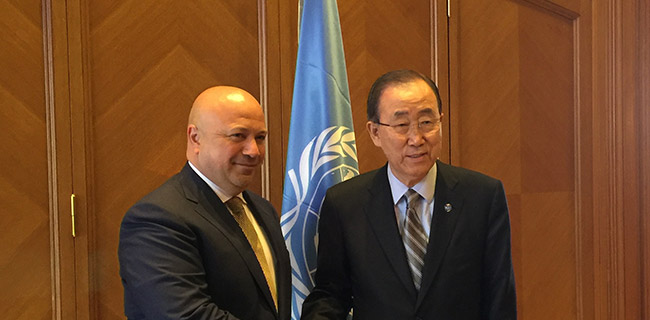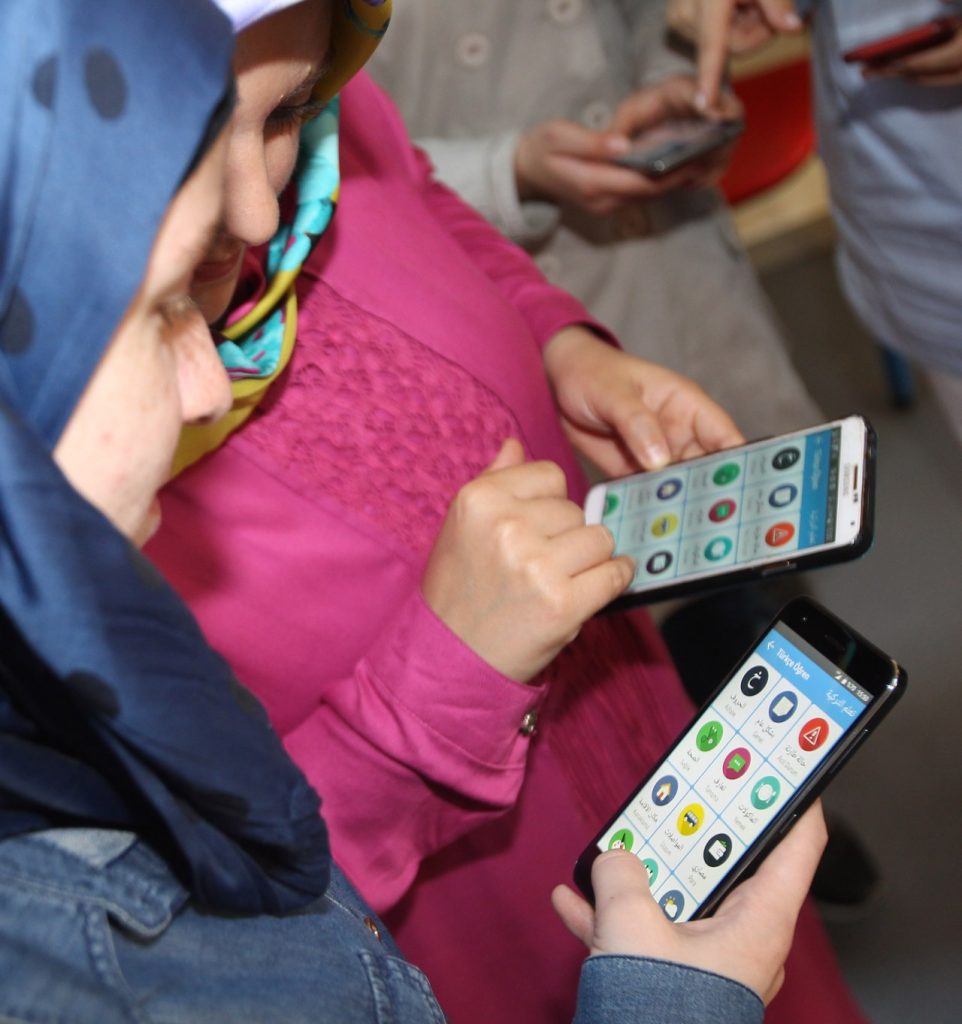Over two million refugees arriving in Turkey presented a serious telecommunications challenge to Turkcell – but also an opportunity to help, and work with a new customer base. In response, they implemented a whole-of-company response, investing in everything from new cell towers to an Arabic language call centre. Now the investment is starting to pay off: in supporting the new arrivals, they have not only helped them stay in touch with family and find their feet in a new country, they have thousands of new customers

Turkey is now the number one refugee hosting country in the world, with nearly three million registered refugees. Overwhelmingly, this population has arrived from Syria since 2013 and the deepening of the civil war.
The challenge this phenomenon presented to mobile operators – was and remains considerable. Turkcell – the biggest mobile phone company in Turkey, with a market share of over 45% – responded quickly.
Historically, Syrians and Turks in the border region have long been closely linked, including commercial and family ties, so Syrians were familiar with Turkcell even before the civil war started. Geographically, the border area is flat so Turkcell signals have always been accessible in Syria. But the conflict, the refugee influx and the need of those who had left to stay in touch with those left behind meant a dramatic increase in all forms of mobile traffic, as did the arrival of a large scale humanitarian operation.
One of the most important first steps was to improve infrastructure. “We were the first operator to mobilize our resources to provide services in areas that ended up received tens of thousands of people overnight” says Ismet Gokce, Turkcell’s radio network planning and optimization engineer in the Gaziantep region. “Our network served not only those who were fleeing the conflict, but also media, national and international relief organizations.” Turkcell has provided connectivity in over 25 camps including erecting cell towers, and will start rolling out high speed mobile broadband to one of the biggest camps, Kahramanmaras, later in the year. From the start, the company’s marketing team has worked closely with CSR – an unusual arrangement for MNOs, but not for Turkcell who had previously developed a whole of company response model in response to earthquakes.

In working with the incoming population, the key challenge was language. Few of the arriving Syrians spoke Turkish, but Turkcell did not operate in Arabic. Only around 10% of arriving Syrians speak any Turkish. As the Syrian community in Turkey grew, the company saw that connectivity was not enough – they had to solve the language problem.
From coding to promotional materials, Turkcell began developing the tools to work in Arabic. The first step was to employ Arabic –speaking staff at the Turkcell shops in the border area. This was relatively easy at first as there a few towns that were the initial crossing points. However, as months passed, Syrians spread deeper into the country, including into areas that had no previous cross-cultural experience and not enough bilingual retail staff. Turkcell responded by establishing an Arabic-language call centre.
“The value proposition here is not the price, it’s that they are not alone. Turkcell is with you, and now you are here we will help you all the way.”
The company is now able to communicate with its Syrian customers entirely in Arabic. The demand for Arabic/Turkish translation services is so great that the call centre – the only Arabic call centre in the country – has found itself dealing with requests that go well beyond telecommunication services. Agents have handled calls from customers needing on-the-spot ad hoc translation during doctor visits, and found themselves giving advice to customers to avoid illegally crossing the Turkish-Greek border on precarious boats.
Noting that many refugees wanted to keep up with news and television programming from home, Turkcell has started bringing in Arabic channels and are working on Arabic subtitles to other TV products.
The company has also developed products specifically meeting the needs of Syrian customers. For example, Turkcell launched the “Hello Syria” package to include countries of the region in addition to standard allowances for data and mobile usage within Turkey.
But the main pitch to their prospective customers is less about financial value, it’s about emphasising that the company is reaching out to and willing and able to support their Syrian customers.
“The value proposition here is not the price, it’s that they are not alone. Turkcell is with you, and now you are here we will help you all the way,” says Efe Capar, Manager of Strategic Program Management at Turkcell.
“The typical monthly spend among prepaid customers is higher than that of an average Turkish prepaid client.”
The company also employs different strategies for different Syrian populations once inside Turkey. The situation of those inside camps, for example is very different from those outside. Turkcell has teams working with people who live in the camps who engage with them face-to-face. Outside, they stay in contact with existing customers (purchasing a SIM card in Turkey involves presenting and registering your passport number so it is easy to identify Syrians). Investing in consumer research for refugee populations has proved crucial. For example, the finding that over 50% have smartphones –fairly close to the domestic market – has driven the focus on data provision, and plans to design apps and online services.
From a commercial point of view, the investment is paying off. Turkcell now has more than 1.2 million Syrian customers.
The typical monthly spend among prepaid customers is higher than that of an average Turkish prepaid client.
Turkcell has found Syrians to be very heavy data users, mostly because many communicate with relatives through online platforms and IP-based apps rather than voice. Enough still use voice calls that they generate fully 10% of Turkcell’s international traffic. Most goes to Syria – but some to Greece and also to Europe. On average, Syrians spend twice as much on international calls as domestic customers. The churn rate, say company sources, is no different to their Turkish users so overall, Syrian refugees are also attractive customers. “They are very valuable,” says Capar. “They are very technologically capable and they are very motivated”.
Given this existing customer base, and the growing recognition that it is sadly unlikely Syrian refugees will return home soon, the company plans to expand its services, expanded on products aimed at a more settled population faced with the challenge of integration.
New products are being developed and launched. Turkcell Academy – a corporate university reconfigured as an all-access, digital learning platform to support education in Turkey in general in 2013 – devised an app – “Hello Hope” – that teaches Turkish to Syrians with flip cards on basic words and phrases. The app also provides support in the form of instant audio translation: speak Arabic into a handset and the phone will provide a translation into spoken Turkish. It helps locate nearby sources of services and support via GPS technology and contains an FAQ tab which includes information on essential processes such as registration, obtaining official papers and accessing to health and education services. “The feature was added after we received this feedback from our partner Red Crescent and the Syrian refugees who use their community centers” says Nazli Hepyaz Iseri, Manager of Digital Learning Products and Partnerships at Turkcell Academy.
The next step for Turkcell is expanding further into developing tools to help Syrian children continue their education. The company intends to introduce video-learning into the app, which serves both the urban and camp population, “turning smartphones into classrooms for Syrian refugees”.
“This is not a temporary situation, ” says Capar. “They will live in Turkey so we will try to help them adjust. This is long term planning and investment”

